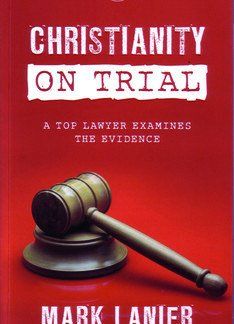The author, an American case lawyer, explains his reasons for believing the gospel. To undecided readers, his closing words underscore his evangelistic aim: ‘This is the verdict I have reached. I think it is most reasonable, and I pray you do, too’ (p.223).
Each chapter begins with an engaging illustration from the US legal world. Using numerous quotations from science, philosophy, history, modern culture and Scripture, the author spends half of the book examining various misconceptions about God. He then focuses on who God is, the foundations of morality and accountability, and the evidence for the resurrection and consequent implications.
There are many insights to stimulate both believers and unbelievers. For example, in light of the human mind’s deceitfulness, he says that ‘truth comes from God pursuing us’.
His apologetic argument for the resurrection is superb. He firstly lays the groundwork in legal theory of admissible evidence and the burden of proof. Lanier then uses a broad range of historical material (both inside and outside the Bible) to demonstrate that the risen Christ was truly witnessed.
This modest volume covers such an array of sceptical criticisms that entrenched unbelievers may sometimes feel that only ‘straw man’ objections to faith are explored and that some treatments are frustratingly cursory. The author’s handling of the anthropic principle (the ‘fine tuning’ of the universe) is one example.
Believers may also be irritated by Lanier’s slightly patchy theology. He seems to confuse the two wills of God (p.67). He skips any discussion of the Old Testament background to the tabernacle allusion in John 1:14 (p.99) and omits the necessity of spiritual rebirth in order for the unbeliever to be liberated from the power of sin (p.183).
Even if not always precise, this apologetic book provides a powerful argument for Christian belief and provides plenty of ammunition for an apologist.
Ben Epps
Stevenage









